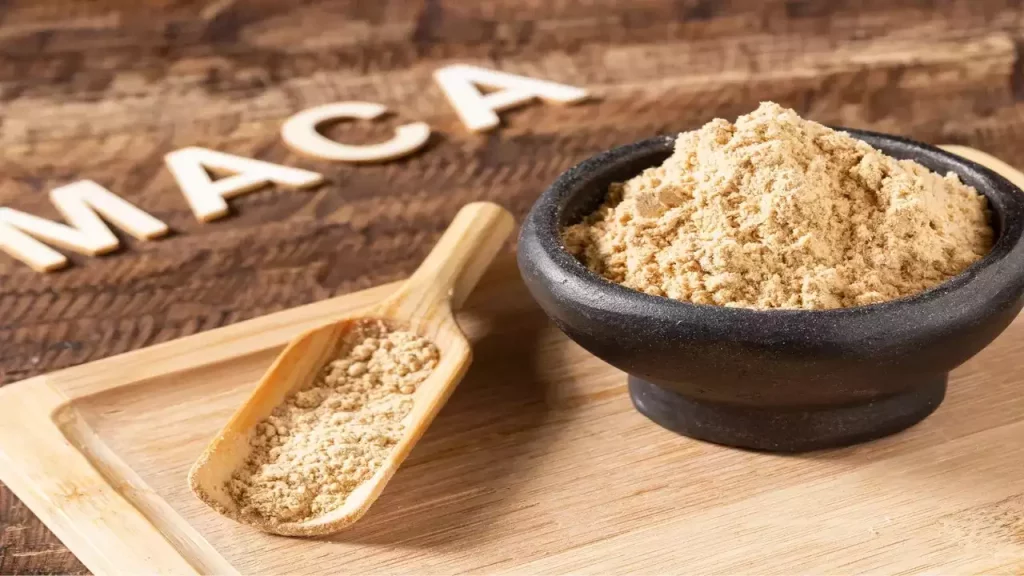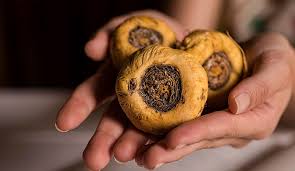
In recent years, there has been a growing interest in natural remedies for various health concerns, including male enhancement. One such remedy that has gained popularity is Maca root, a plant native to the Andes region in South America. Maca has been traditionally used for its purported health benefits, including its potential role in enhancing male sexual health. In this comprehensive guide, we will explore the historical background, nutritional profile, potential benefits, and scientific evidence surrounding Maca root in the context of male enhancement.
Table of Contents
Historical Background of Maca
Maca (Lepidium meyenii) has a rich history dating back thousands of years. Indigenous people in the Andes region, particularly in Peru, have been using Maca root as a staple food and traditional medicine for centuries. The plant belongs to the Brassicaceae family and is known for its hardy nature, thriving in harsh conditions at high altitudes.
Maca was traditionally believed to possess various health-promoting properties, including its ability to enhance energy, stamina, and fertility. It was often consumed by warriors before battles to boost strength and endurance. Over time, Maca gained a reputation as a natural aphrodisiac and fertility enhancer.
Nutritional Profile of Maca
To understand the potential benefits of Maca for male enhancement, it’s crucial to delve into its nutritional composition. Maca root is a nutrient-dense food, rich in several essential vitamins, minerals, and bioactive compounds. The nutritional profile of Maca includes:
- Vitamins: Maca is a good source of B vitamins, including B1 (thiamine), B2 (riboflavin), B3 (niacin), B6 (pyridoxine), and B12 (cobalamin). These vitamins play a vital role in energy metabolism, nerve function, and overall well-being.
- Minerals: Maca contains essential minerals such as calcium, phosphorus, magnesium, potassium, and iron. These minerals are crucial for bone health, muscle function, and overall physiological balance.
- Fiber: Maca is a good source of dietary fiber, which aids digestion and promotes gut health.
- Protein: Maca contains a notable amount of protein, providing essential amino acids necessary for various bodily functions, including muscle building and repair.
- Fatty Acids: Maca contains fatty acids, including linoleic acid, which is an essential omega-6 fatty acid important for heart health.
- Bioactive Compounds: Maca contains various bioactive compounds, including alkaloids and glucosinolates, which are believed to contribute to its potential health benefits.
Potential Benefits of Maca for Male Enhancement
While Maca has been traditionally associated with a range of health benefits, its potential role in male enhancement has garnered significant attention. Some of the potential benefits include:
- Enhanced Libido: Maca has been traditionally used as an aphrodisiac, with claims that it may help improve libido and sexual function in both men and women. This effect is thought to be linked to the plant’s influence on hormonal balance.
- Improved Erectile Function: Some studies suggest that Maca may have a positive impact on erectile function, potentially attributed to its ability to modulate hormones, increase blood flow, and reduce oxidative stress.
- Increased Sperm Count and Motility: Several animal studies have explored the effects of Maca on male reproductive health, indicating that it may contribute to increased sperm count and motility. However, more research is needed to confirm these findings in humans.
- Hormonal Balance: Maca is believed to act as an adaptogen, helping the body adapt to stress and promoting hormonal balance. This balance may be particularly relevant to male reproductive hormones, such as testosterone and estrogen.
- Enhanced Stamina and Energy: Traditionally, Maca has been used to boost energy and stamina. While these effects may not be directly related to male enhancement, increased energy levels can positively influence overall well-being and sexual performance.
The Science Of Maca Root For Male Enhancement
Maca, scientifically known as Lepidium meyenii, is a plant native to the high-altitude regions of the Andes Mountains in Peru. It belongs to the Brassicaceae family, which also includes vegetables like broccoli and cabbage. Maca has been cultivated and used for its nutritional and medicinal properties for thousands of years, dating back to the Inca civilization.
Botanical Characteristics: Maca is a hardy perennial plant that thrives in harsh weather conditions, including extreme temperatures, poor soil quality, and high altitudes (above 3,500 meters or 11,000 feet). The plant has a low-growing rosette of leaves and produces a central stalk with small, white flowers. The edible part of the maca plant is the tuberous root, which varies in color from white or yellow to purple or black.
Nutritional Composition: Maca is renowned for its rich nutritional profile. It is a good source of essential nutrients, including carbohydrates, proteins, fiber, and various vitamins and minerals. Maca is particularly notable for its high content of vitamin C, copper, iron, potassium, and manganese. Additionally, it contains several bioactive compounds, such as alkaloids, tannins, saponins, and glucosinolates.
Adaptogenic Properties: One of the key attributes of maca is its classification as an adaptogen. Adaptogens are substances that help the body adapt to stressors, both physical and mental, by promoting homeostasis. Maca is believed to modulate the endocrine system, supporting hormonal balance and reducing the negative effects of stress on the body. This adaptogenic quality has led to the increased interest in maca as a potential natural remedy for stress and fatigue.
Hormonal Regulation: Maca has gained popularity for its purported ability to influence hormonal balance, particularly in the context of reproductive health. Some studies suggest that maca may have a positive impact on hormone levels, including estrogen, progesterone, and testosterone. As a result, it has been investigated for its potential role in improving fertility, alleviating symptoms of menopause, and enhancing sexual function.
Aphrodisiac Effects: Traditionally, maca has been used as an aphrodisiac, and anecdotal evidence supports its reputation as a libido-enhancing agent. While scientific research on this aspect is ongoing, some studies have reported improvements in sexual function and desire among individuals supplementing with maca.
Energy and Endurance: Maca is also touted for its potential to enhance energy levels and physical endurance. Athletes and fitness enthusiasts have explored maca supplementation to improve stamina and performance during physical activities. However, more research is needed to fully understand the mechanisms behind these potential benefits.
Antioxidant Properties: Maca contains antioxidants that help combat oxidative stress in the body. Antioxidants play a crucial role in neutralizing free radicals, which are unstable molecules that can damage cells and contribute to various chronic diseases.
Potential Health Benefits: While maca is generally considered safe for consumption, and many users report positive effects, it’s essential to note that more research is needed to establish its efficacy and safety conclusively. Some potential health benefits associated with maca include improved mood, increased energy, enhanced cognitive function, and better overall well-being.
Culinary Uses: Maca root is commonly consumed in various forms, including powder, capsules, and extracts. It has a distinctive, earthy flavor, and its adaptogenic and nutritional properties make it a popular addition to smoothies, beverages, and recipes. In traditional Peruvian cuisine, maca is often used in soups, stews, and baked goods.
Conclusion: Maca is a fascinating plant with a rich history of traditional use and a growing body of scientific research exploring its potential health benefits. While it has gained popularity as a nutritional supplement, it’s crucial to approach its consumption with a balanced perspective, considering individual health conditions and consulting with healthcare professionals. As research on maca continues, it holds the promise of providing valuable insights into its role in supporting overall health and well-being
Scientific Evidence and Research on Maca
Despite the long history of traditional use and the promising anecdotal reports, it’s essential to evaluate the scientific evidence supporting the purported benefits of Maca for male enhancement. Several studies have been conducted to investigate its effects on sexual function, hormonal balance, and reproductive health.
Libido and Sexual Function:
A systematic review published in the journal “BMC Complementary and Alternative Medicine” in 2010 analyzed the results of randomized controlled trials on the effects of Maca on sexual function. The review suggested that Maca might have a positive impact on sexual desire but highlighted the need for more well-designed studies to confirm these findings.
Erectile Function:
A study published in “Andrologia” in 2009 investigated the effects of Maca on erectile function in men with mild erectile dysfunction. The study found that Maca supplementation led to a significant improvement in erectile function compared to a placebo. However, the sample size was relatively small, and further research is needed for conclusive evidence.
Sperm Quality:
Animal studies, such as one published in “Asian Journal of Andrology” in 2001, have suggested that Maca may have a positive impact on sperm count and motility. However, more human studies are required to validate these findings and determine the optimal dosage.
Hormonal Balance:
A study published in “International Journal of Biomedical Science” in 2006 investigated the effects of Maca on hormonal balance in men. The study suggested that Maca might have a modulating effect on sex hormones, particularly by increasing testosterone levels. Nevertheless, larger and more rigorous studies are necessary to establish these effects conclusively.

Safety and Considerations
While Maca is generally considered safe for consumption, it’s essential to exercise caution and consider certain factors:
- Dosage: The optimal dosage of Maca for male enhancement is not firmly established. Different studies have used varying dosages, and individual responses may vary. It is advisable to start with a lower dose and monitor for any adverse effects.
- Quality of the Product: The quality of Maca supplements can vary, and it’s crucial to choose products from reputable sources to ensure purity and potency.
- Individual Variability: Responses to Maca may vary among individuals. Factors such as overall health, pre-existing medical conditions, and lifestyle can influence the effectiveness of Maca supplementation.
- Interactions with Medications: Individuals taking medications or with pre-existing medical conditions should consult with a healthcare professional before incorporating Maca supplements into their routine, as it may interact with certain medications.
Conclusion
Maca root has a rich history as a traditional remedy for various health concerns, including its potential role in male enhancement. While anecdotal evidence and some scientific studies suggest promising benefits, more research is needed to establish the efficacy of Maca in improving libido, erectile function, and sperm quality conclusively.
Individuals interested in incorporating Maca into their wellness routine should approach it with caution, considering factors such as dosage, product quality, and individual health status. Consulting with a healthcare professional before starting any supplementation is advisable, especially for those with underlying medical conditions or taking medications.
In conclusion, Maca root presents an intriguing avenue for exploring natural approaches to male enhancement, and future research may shed more light on its mechanisms of action and potential benefits for sexual health.

Leave a Reply